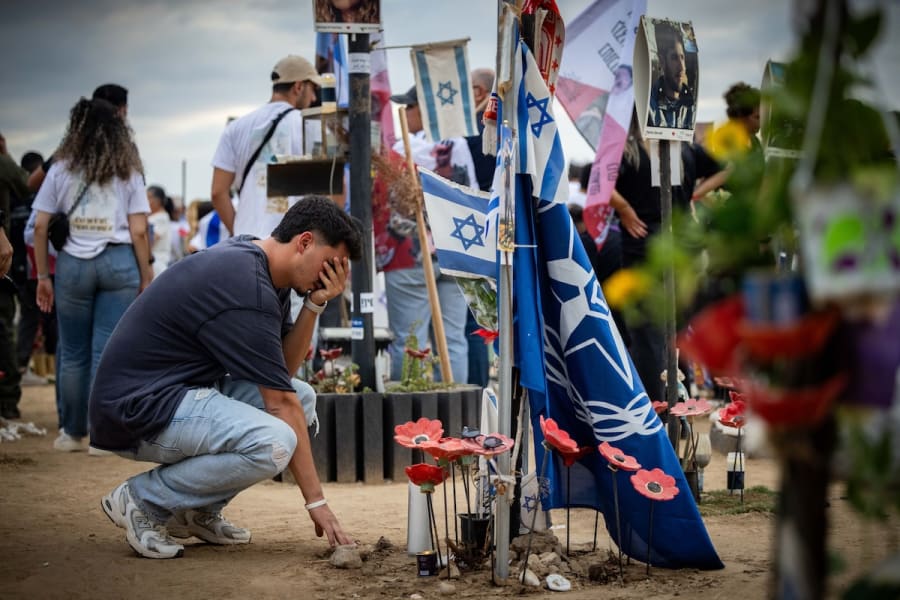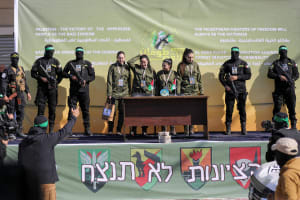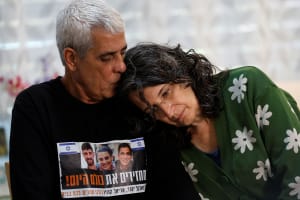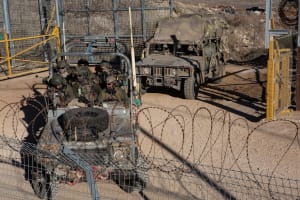Survey: 72% of Israelis say country has failed to learn lessons from Oct. 7 Hamas attack

A large majority of Israelis, 72%, believe the country has not learned the lessons of the Hamas-led Oct. 7, 2023, attack regarding the dangers of internal division within Israeli society. This statistic is according to the Tensions Index, which is published every year by Gesher in cooperation with the Lazar Research Institute.
Gesher (meaning bridge in Hebrew) is an Israeli NGO dedicated to unifying Israeli society through dialogue and interaction. Only 18% of the Israelis surveyed believed that Israeli society learned these lessons from Oct. 7, while 10% were unsure about the issue.
According to the Gesher survey, the ideological rift between Israel's political right and left remained the primary source of tension in Israeli society in 2024. 43% of respondents identified the left-right divide as the most important cause of conflict, while 70% considered it a significant threat to society.
However, conflict between Arabs and Jews was seen as the most dangerous point of tension with 75% of Israelis considering tensions with Arabs as the most perilous threat to society. Sixty-nine percent of Israelis surveyed said the Oct. 7 Hamas attack, which launched the ongoing multi-front war, further deteriorated Arab-Jewish relations.
In addition, 43% said they were concerned about the growing support for Hamas, and the Islamist and terrorist ideology of the terrorist organization, among Israeli Arabs.
CEO of the Gesher organization Ilan Gal-Dor, said the Oct. 7 attack woke Israelis up to the realities of the conflict.
“The October 7 attack was not just a military crisis, but a wake-up call for Israeli society,” Ilan Gal-Dor said. “Beyond security threats, Israelis are deeply worried about the country’s social fabric. Recognizing this is the first step toward national reconstruction.”
The Gesher index also revealed divisions on a number of sub-issues that continue to drive divisions and tensions within Israeli society:
The Haredi military draft law and calls for equal national service were declared a driver of division by 31% of respondents, while 25% pointed to Israeli Prime Minister Benjamin Netanyahu’s leadership as a source of division. In addition, 19% named the judicial system and Attorney General Gali Baharav-Miara as significant points of contention.
Overall, the Israeli government’s management of the country’s social tensions was widely met with stark criticism with 65% of respondents saying the government had worsened relations between secular and ultra-Orthodox Jews and 64% declaring that the government had made right-left divisions considerably worse. Furthermore, 58% blamed Netanyahu’s government for the deterioration of relations between Jews and Arabs.
The survey revealed a deep pessimism among Israelis with 64% of those queried concerned that divisions have not peaked and will continue to grow and deepen.
Particularly concerning is that 44% said that not even resolving the issue of the military draft law for the ultra-Orthodox would be enough to heal Israeli society from its deep fractures. Just 22% of Israelis adhere to the slightly more optimistic view that the country has reached peak level when it comes to internal divisions and strife.
“The survey proves that Israeli society remains deeply divided,” said Gal-Dor. “While war has brought a sense of shared fate, the real challenge lies in overcoming internal fractures. At Gesher, we will continue working to bridge gaps across all sectors of society and lead Israel toward a new era of unity.”
The full findings of the Tensions Index were presented at Gesher’s conference on Jan. 31, titled “How to Address Social Polarization?”

The All Israel News Staff is a team of journalists in Israel.
You might also like to read this:
















